
Tbilisi: A Melting Pot of Cultures and History
Tbilisi, the capital of Georgia, is a city where ancient history meets modern charm. Nestled in the heart of the Caucasus region, Tbilisi is known for its diverse architecture, which spans medieval churches, ornate art nouveau buildings, and Soviet Modernist structures. The city's historic Old Town is a maze of narrow, winding streets, where you can find traditional Georgian houses with wooden balconies and cobblestone paths leading to hidden courtyards. The city's vibrant culture is evident in its thriving arts scene, bustling markets, and an array of cafes and restaurants. Tbilisi is famous for its warm hospitality, and visitors are often welcomed with open arms. The local cuisine is a delightful experience, with dishes like khachapuri (cheese-filled bread) and khinkali (dumplings) that are sure to tantalize your taste buds. Don't miss out on the local wine, as Georgia is one of the oldest wine-producing regions in the world. Beyond the city limits, the surrounding landscapes offer stunning natural beauty, from the lush greenery of the Tbilisi National Park to the impressive views from Mount Mtatsminda. Whether you are exploring the city's rich history or venturing into its picturesque surroundings, Tbilisi promises an unforgettable experience for every traveler.
Local tips in Tbilisi
- Visit the sulfur baths in Abanotubani for a relaxing experience.
- Explore the Old Town on foot to fully appreciate its charm.
- Try the local food and wine; traditional Georgian cuisine is a must.
- Take a ride on the funicular to Mount Mtatsminda for panoramic city views.
- Visit the Narikala Fortress for a glimpse into Tbilisi's history.
- Check out the Dry Bridge Market for unique antiques and souvenirs.
- Use public transport or taxis; driving in the city can be challenging.
Neighbourhoods in Tbilisi
Tbilisi: A Melting Pot of Cultures and History
Tbilisi, the capital of Georgia, is a city where ancient history meets modern charm. Nestled in the heart of the Caucasus region, Tbilisi is known for its diverse architecture, which spans medieval churches, ornate art nouveau buildings, and Soviet Modernist structures. The city's historic Old Town is a maze of narrow, winding streets, where you can find traditional Georgian houses with wooden balconies and cobblestone paths leading to hidden courtyards. The city's vibrant culture is evident in its thriving arts scene, bustling markets, and an array of cafes and restaurants. Tbilisi is famous for its warm hospitality, and visitors are often welcomed with open arms. The local cuisine is a delightful experience, with dishes like khachapuri (cheese-filled bread) and khinkali (dumplings) that are sure to tantalize your taste buds. Don't miss out on the local wine, as Georgia is one of the oldest wine-producing regions in the world. Beyond the city limits, the surrounding landscapes offer stunning natural beauty, from the lush greenery of the Tbilisi National Park to the impressive views from Mount Mtatsminda. Whether you are exploring the city's rich history or venturing into its picturesque surroundings, Tbilisi promises an unforgettable experience for every traveler.
When is the best time to go to Tbilisi?
Iconic landmarks you can’t miss
მთაწმინდის პარკი -Mtatsminda Park
Experience the breathtaking views, thrilling rides, and serene landscapes at Mtatsminda Park, Tbilisi's premier amusement destination.
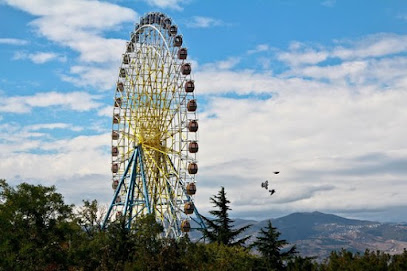
Bridge of Peace
Experience the breathtaking beauty of the Bridge of Peace in Tbilisi, where modern architecture meets rich Georgian history, creating unforgettable views.
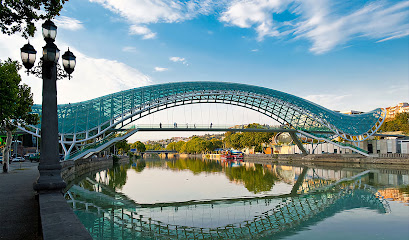
Rike Park
Explore Rike Park in Tbilisi, a modern urban park featuring lush landscapes, cultural events, and stunning views of the Kura River.
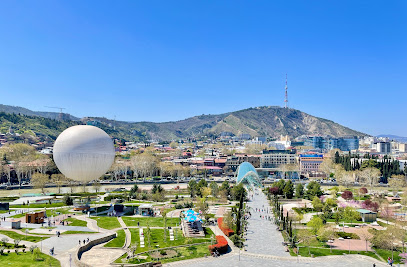
Liberty square
Explore the vibrant heart of Tbilisi at Liberty Square, where culture, history, and community converge in a stunning urban landscape.
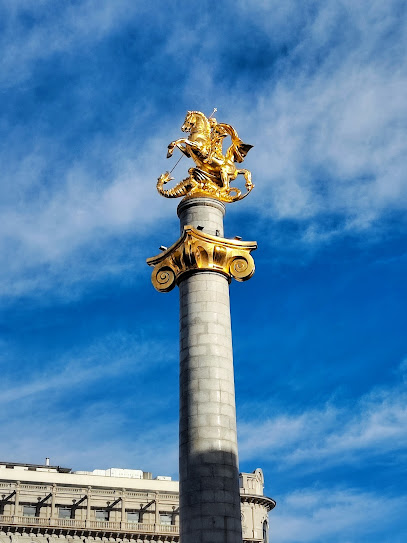
Holy Trinity Cathedral of Tbilisi
Explore the Holy Trinity Cathedral of Tbilisi, a breathtaking symbol of faith and architectural beauty in the heart of Georgia's capital.
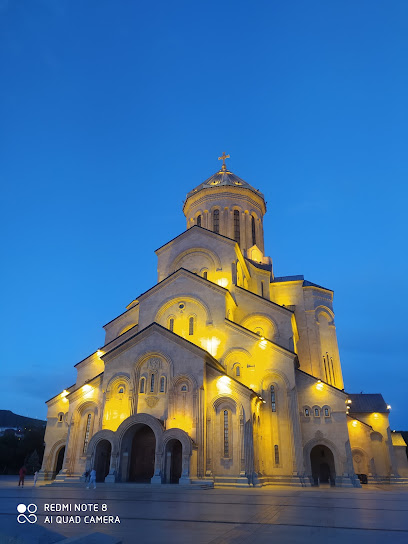
National Botanical Garden
Discover the stunning flora and serene landscapes of Tbilisi's National Botanical Garden, a true gem for nature lovers and peace seekers.
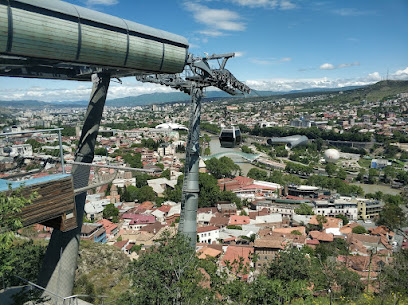
Narikala
Explore the historic Narikala Fortress in Tbilisi, where ancient architecture meets breathtaking views of the city and scenic landscapes.

Chronicle of Georgia
Explore the Chronicle of Georgia in Tbilisi, a historical landmark showcasing the country's rich culture with stunning views and intricate sculptures.
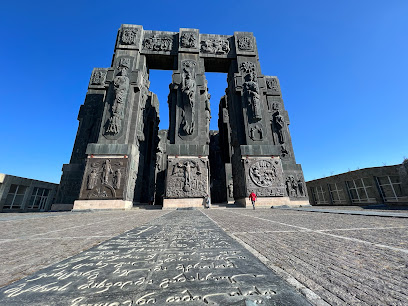
Mother of Georgia
Discover the iconic Mother of Georgia, a breathtaking monument symbolizing the spirit of Tbilisi and offering stunning views of the city.
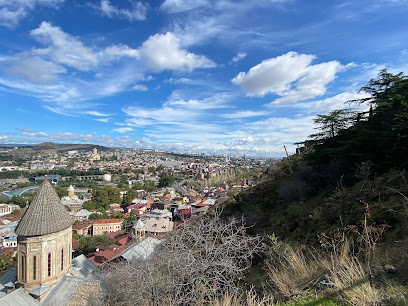
Gabriadze
Discover the enchanting Gabriadze Theater in Tbilisi, where captivating performances meet stunning architecture in the heart of Georgia's cultural scene.
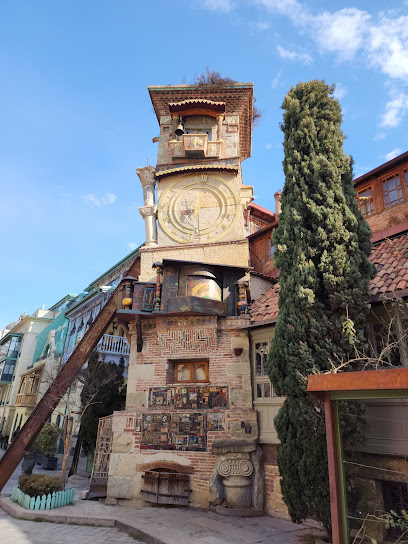
Monument of St. George
Experience the grandeur of Tbilisi's Monument of St. George, a stunning sculpture symbolizing bravery and freedom in the heart of the city.
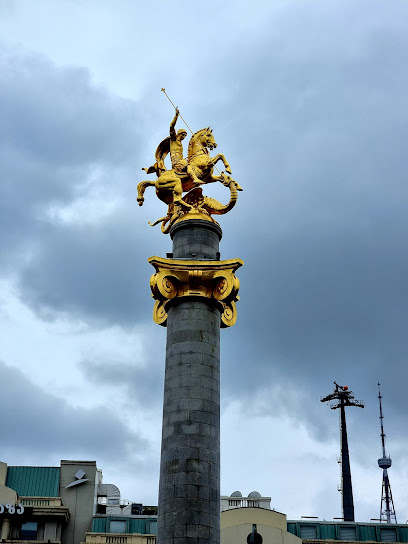
Meidan Bazar
Experience the vibrant atmosphere of Meidan Bazar, Tbilisi's unique marketplace filled with local flavors, crafts, and cultural charm.
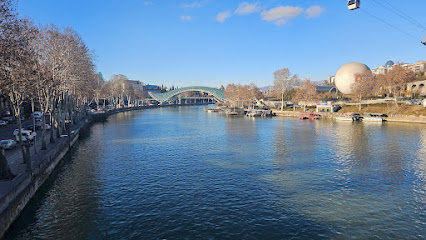
Metekhi Virgin Mary Assumption Church
Explore Tbilisi's historic Metekhi Virgin Mary Assumption Church, a stunning blend of architecture, history, and incredible riverside views.
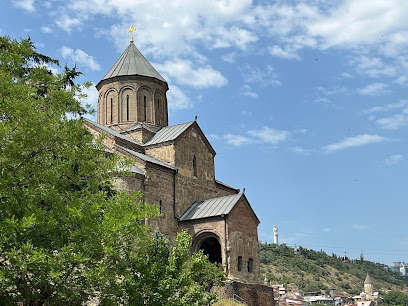
Sion Cathedral of Tbilisi
Discover the Sion Cathedral in Tbilisi, a stunning Eastern Orthodox Church filled with rich history and breathtaking architecture, perfect for every traveler.
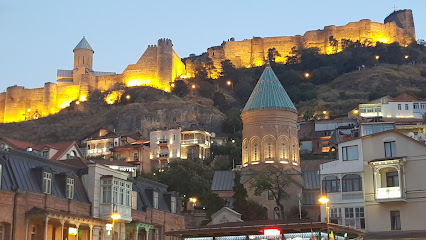
Kashueti St. George Church
Explore the architectural beauty and spiritual tranquility of Kashueti St. George Church, a must-see Orthodox gem in Tbilisi's cultural landscape.
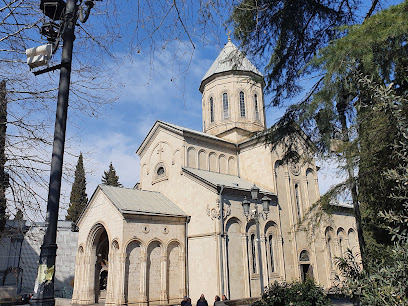
Unmissable attractions to see
Mtatsminda Park
Experience breathtaking views and thrilling attractions at Tbilisi's iconic mountaintop amusement park, a perfect blend of nature and entertainment.
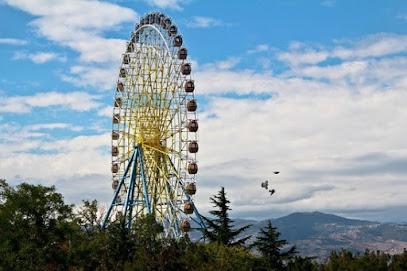
Bridge of Peace
A dazzling pedestrian bridge in Tbilisi, connecting the old and new with stunning LED displays and panoramic city views over the Kura River.
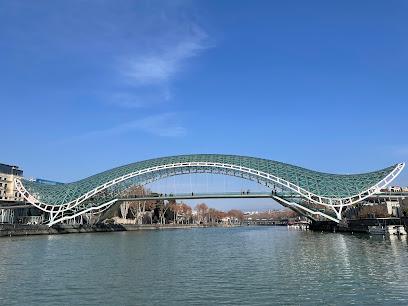
Liberty square
Discover Tbilisi's central square, a vibrant hub of history, culture, and stunning architecture, crowned by the iconic St. George statue.
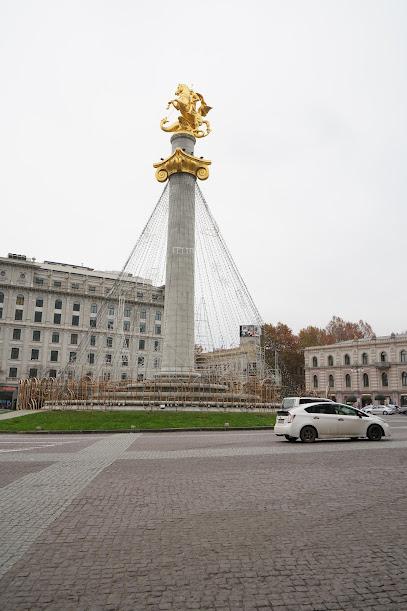
Rike Park
Discover Tbilisi's modern heart at Rike Park: gardens, art, iconic bridge, and cable car to Narikala Fortress await!
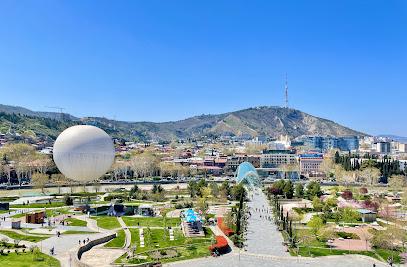
Svetitskhoveli Cathedral
Discover the architectural wonder of Svetitskhoveli Cathedral in Mtskheta, a UNESCO World Heritage site steeped in history and beauty.
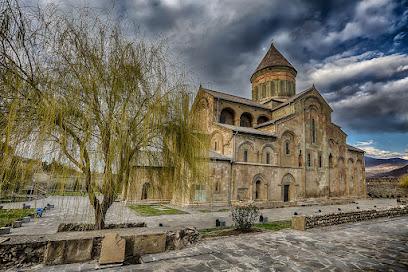
Holy Trinity Cathedral of Tbilisi
Tbilisi's Holy Trinity Cathedral: A modern architectural marvel and a symbol of Georgia's spiritual and national revival, offering breathtaking city views.
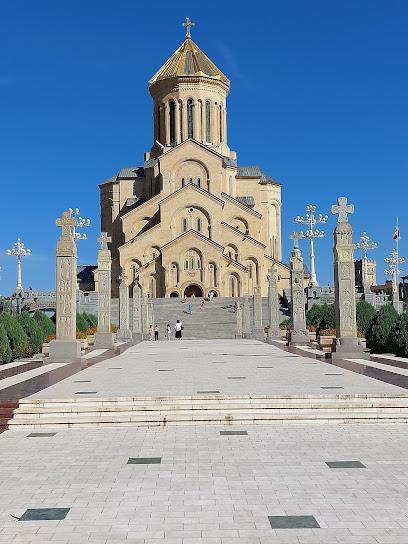
National Botanical Garden
Discover Tbilisi's National Botanical Garden: A historic oasis with diverse flora, scenic waterfalls, and tranquil escapes.
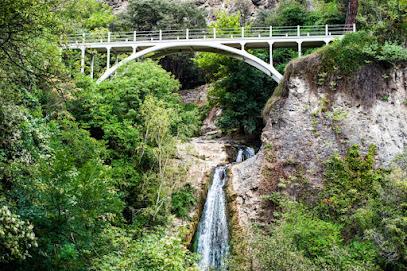
Vake Park
Escape to Tbilisi's Vake Park: A historic green space with walking paths, memorials, and stunning city views.
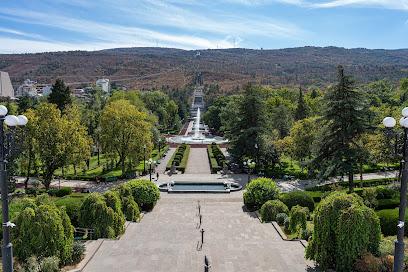
Jvari Monastery
A UNESCO World Heritage Site, Jvari Monastery offers stunning views and a glimpse into Georgia's rich religious history and architecture.
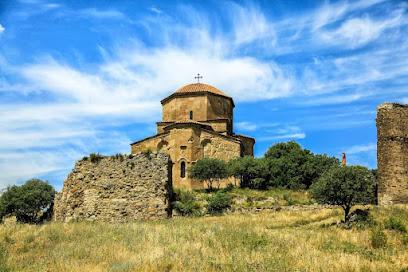
Chreli Abano
Experience Tbilisi's iconic sulfur baths at Chreli Abano, a historic landmark with stunning Persian architecture and therapeutic waters.
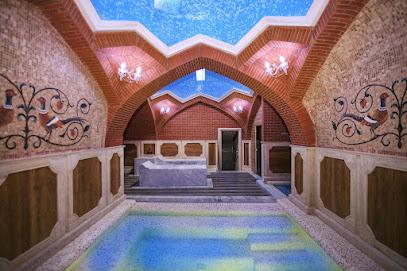
Chronicles of Georgia
Discover Georgia's past etched in stone at this monumental tribute offering panoramic views of Tbilisi and its surrounding landscape.
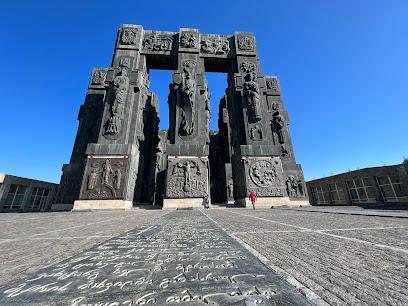
Narikala Fortress
Explore Tbilisi's iconic ancient fortress for panoramic views and a journey through centuries of Georgian history.
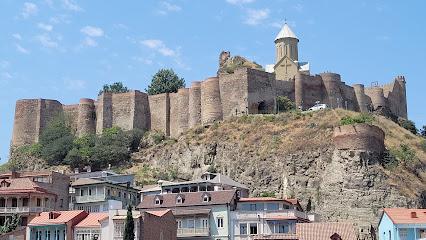
Dezerter Bazaar
Experience the vibrant Dezerter Bazaar in Tbilisi: a sensory feast of fresh produce, spices, and Georgian culture near Station Square.
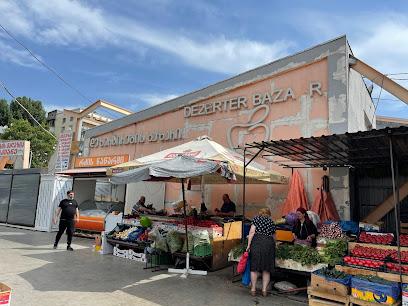
Dry Bridge Market
Discover unique antiques, Soviet-era treasures, and local crafts at Tbilisi's iconic Dry Bridge Market, a vibrant hub of history and art.
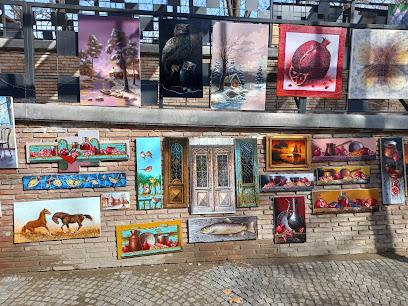
Tbilisi Zoo
Discover diverse wildlife in the heart of Tbilisi at the city's historic zoo, a place for education, conservation, and family fun.
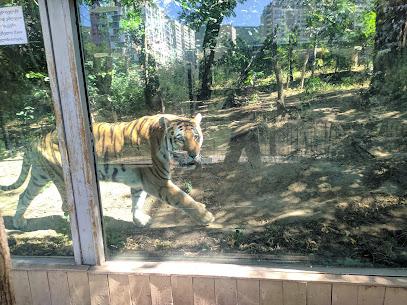
Essential places to dine
Funicular
Experience exquisite Georgian cuisine with breathtaking views at Funicular on Mtatsminda plateau in Tbilisi.
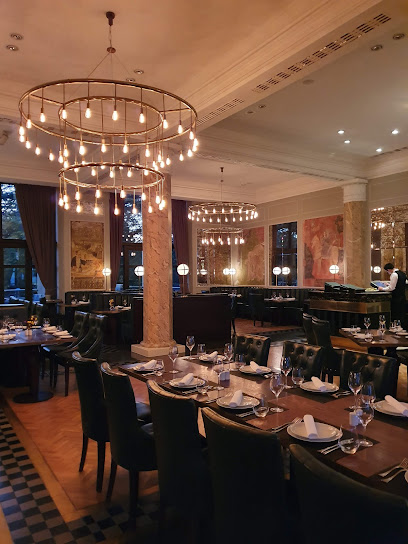
Ethno Tsiskvili
Experience authentic Georgian cuisine at Ethno Tsiskvili with delightful dishes and vibrant cultural performances along Tbilisi's scenic riverside.
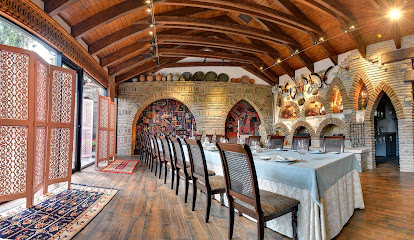
Georgian House
Discover the flavors of Georgia at Georgian House - a culinary gem in Tbilisi offering authentic dishes and warm hospitality.
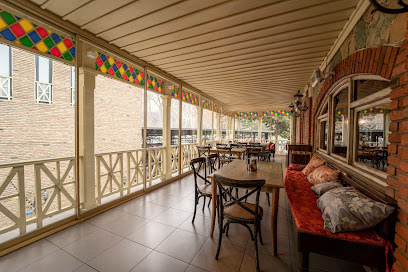
Restaurant Usakhelouri
Experience authentic Georgian cuisine and fine wines at Restaurant Usakhelouri in Tbilisi's historic Dzveli district.
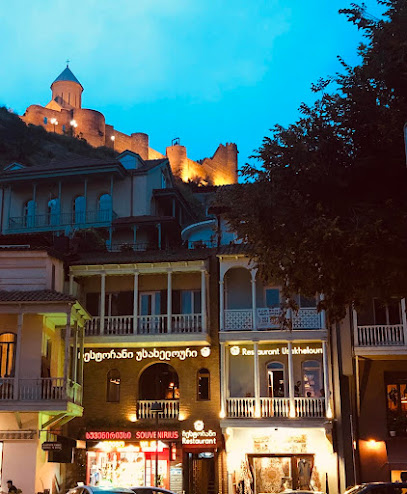
Shavi Lomi
Discover authentic Georgian cuisine at Shavi Lomi in Tbilisi—where traditional flavors meet modern charm.
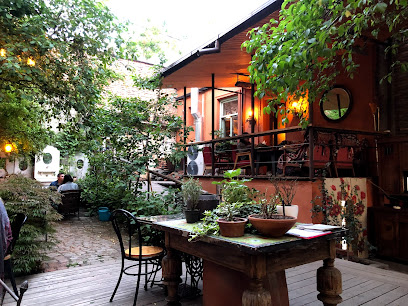
Bernard
Discover Bernard in Tbilisi - A Sweet Haven for Dessert Lovers Offering Exquisite Buffets and Cozy Ambiance.
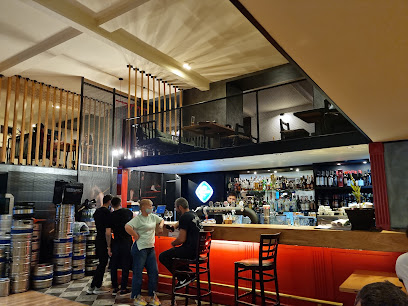
Maspindzelo
Discover authentic Georgian cuisine at Maspindzelo in Tbilisi - where tradition meets taste in a cozy atmosphere.
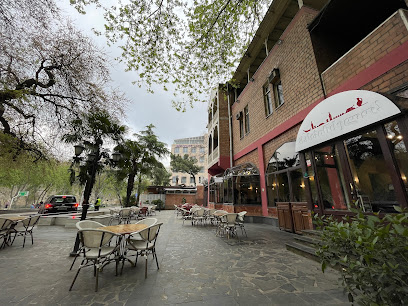
Barbarestan
Discover the essence of Georgian cuisine at Barbarestan in Tbilisi - a perfect blend of tradition, flavor, and culture.
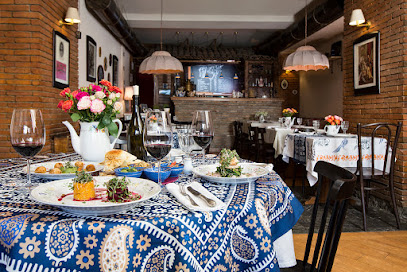
Keto & Kote
Savor authentic Georgian cuisine at Keto & Kote, where tradition meets taste in a cozy atmosphere.
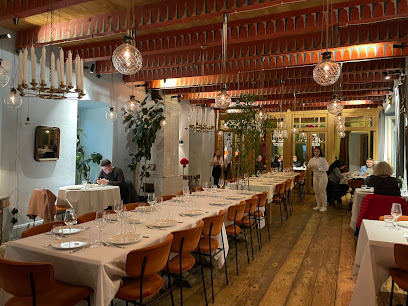
Restaurant Hide
Experience authentic Georgian cuisine and exquisite wines at Restaurant Hide in Tbilisi's enchanting Dzveli district.
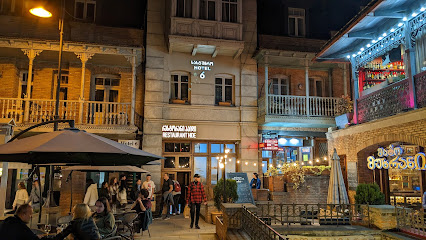
Cafe Daphna
Experience authentic Georgian cuisine at Café Daphna in Tbilisi – where tradition meets modern charm amidst vibrant local culture.
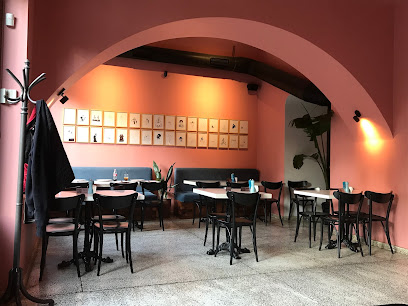
Salobie Bia
Discover the heart of Georgian cuisine at Salobie Bia – where tradition meets flavor in Tbilisi's vibrant culinary scene.
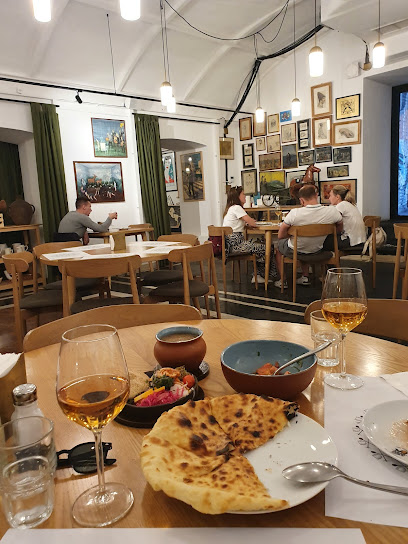
Mapshalia
Experience authentic Georgian cuisine at Mapshalia in Tbilisi - a cozy restaurant offering delicious dishes at affordable prices.
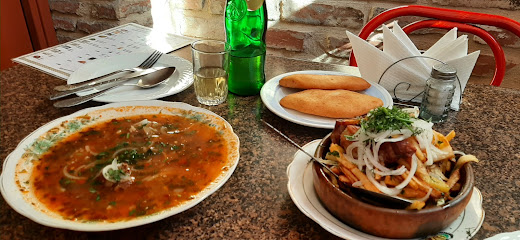
Organique Josper
Experience the essence of Georgian cuisine at Organique Josper in Tbilisi - where tradition meets innovation in every dish.
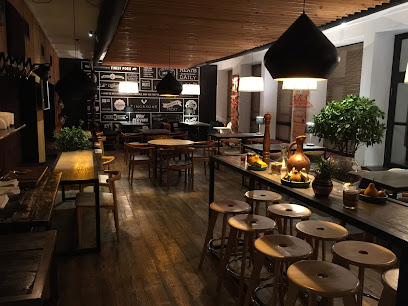
Kakhelebi on Beliashvili
Savor the authentic flavors of Georgia at Kakhelebi on Beliashvili – where tradition meets taste in Tbilisi's heart.
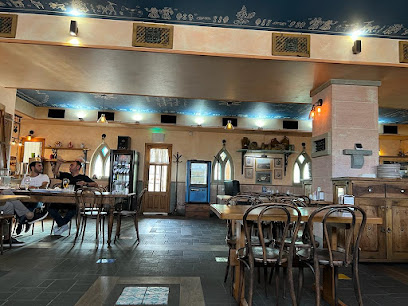
Markets, malls and hidden boutiques
Tbilisi Mall
Discover the ultimate shopping experience at Tbilisi Mall, where international brands meet local charm in a vibrant atmosphere.
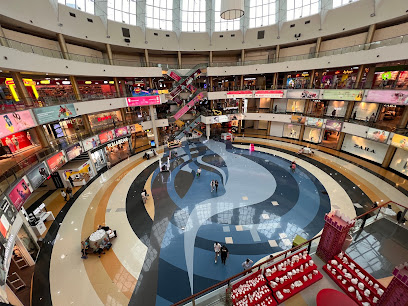
Galleria Tbilisi
Experience shopping, dining, and local culture at Galleria Tbilisi, the premier shopping mall in the heart of Georgia's capital.
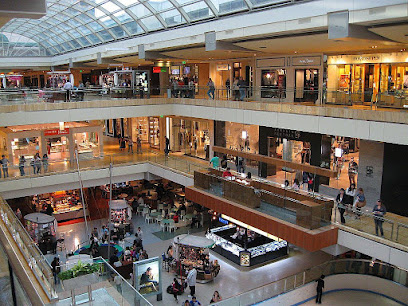
Lee & Wrangler
Discover exceptional fashion at Lee & Wrangler, Tbilisi's top clothing store offering stylish apparel for every occasion and taste.
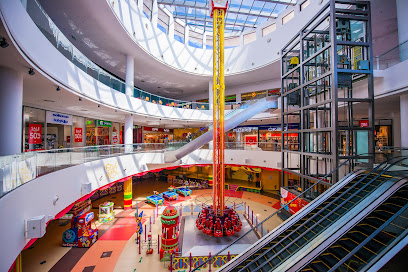
Khurjini
Explore the essence of Georgia at Khurjini, Tbilisi's beloved natural goods store, where local flavors and artisanal crafts await.
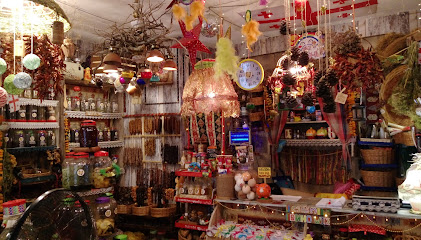
Dezerter Vintage
Explore Dezerter Vintage in Tbilisi for unique vintage clothing that combines history and style into every piece.
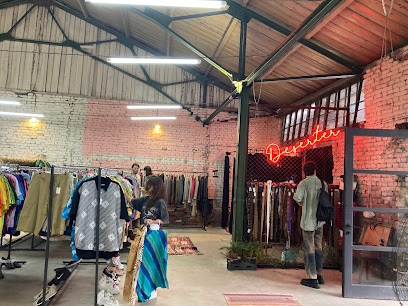
Tbilisi Weekend Street Market
Experience the lively Tbilisi Weekend Street Market, where local crafts and delicious street food create an unforgettable cultural adventure.
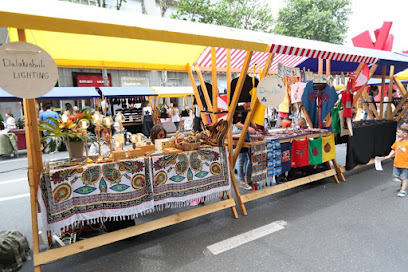
MORE is LOVE
Explore the unique blend of Georgian and international fashion at MORE is LOVE, a must-visit clothing store in Tbilisi's historic district.
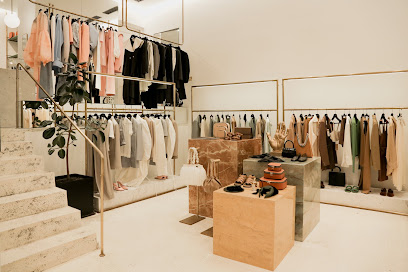
Friday Night • პარასკევი ღამე
Explore Friday Night in Tbilisi for unique gifts, aromatherapy supplies, and mystical treasures that enhance your spiritual journey.
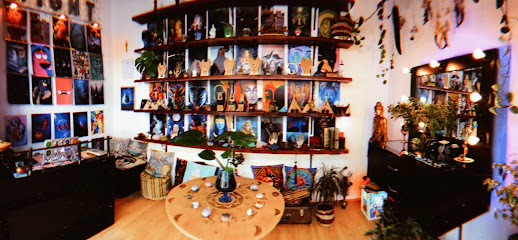
Vintylator Vintage Shop
Explore Vintylator Vintage Shop in Tbilisi for a unique collection of vintage clothing, accessories, and a glimpse into fashion history.
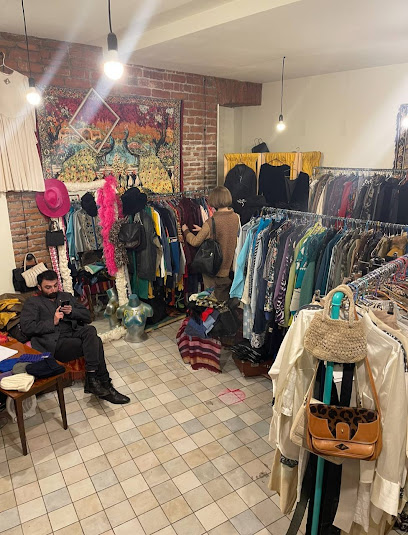
Flying Painter Store
Explore the Flying Painter Store in Old Tbilisi for unique gifts, artistic clothing, and fashion accessories that embody Georgian culture.
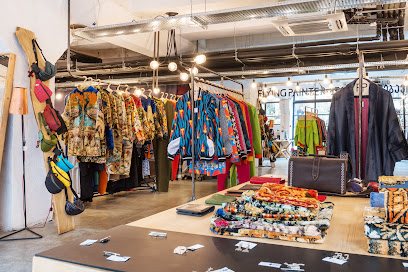
Babale
Explore Babale in Old Tbilisi: A Unique Souvenir Store Offering Handcrafted Treasures and Local Art.
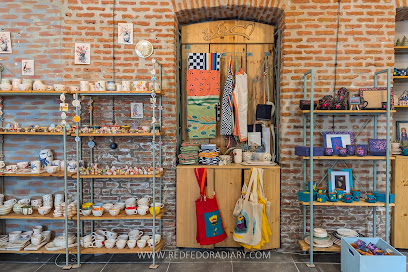
Vintage Crush
Discover unique vintage fashion treasures at Vintage Crush in Tbilisi, where every piece has a story waiting to be worn.
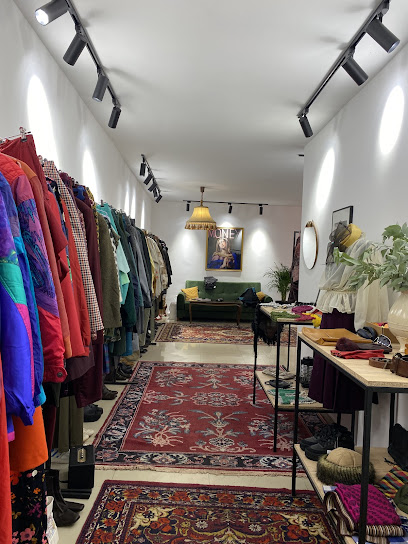
Qisa Bags
Explore Qisa Bags in Tbilisi for exquisite handcrafted bags and leather goods, showcasing the best of Georgian craftsmanship and artistry.
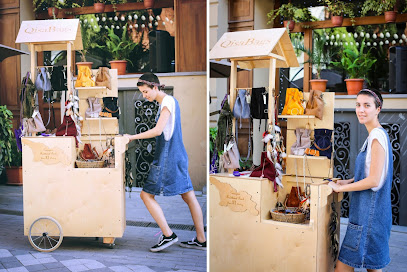
Ethnodesign
Explore Ethnodesign in Tbilisi for authentic Georgian crafts and souvenirs, a perfect blend of tradition and contemporary design.
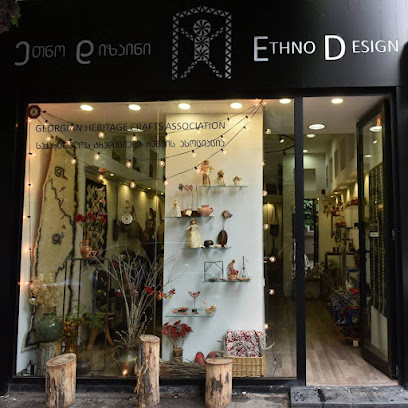
Chaos Concept Store
Explore the vibrant Chaos Concept Store in Tbilisi for unique fashion, art, and local crafts that reflect the creative spirit of Georgia.
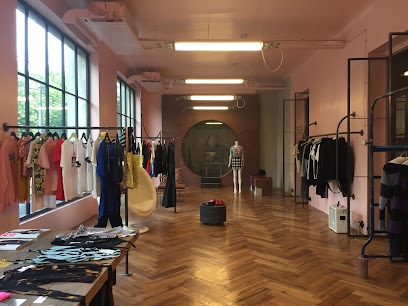
Essential bars & hidden hideouts
Black Dog Bar
Experience the lively spirit of Tbilisi at Black Dog Bar, where eclectic decor meets affordable drinks and vibrant music.
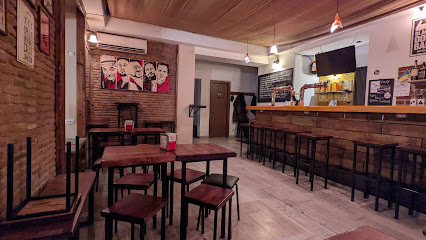
Warszawa
Experience Tbilisi's nightlife at Warszawa, a lively bar offering a diverse drink selection and a friendly atmosphere perfect for socializing.
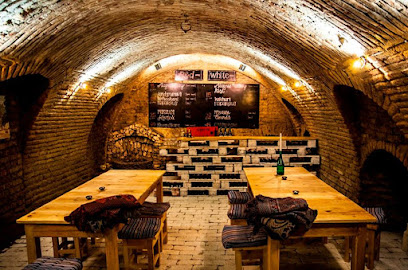
DADI wine bar and shop
Discover the heart of Georgian wine culture at DADI Wine Bar, where tradition meets taste in a charming Tbilisi setting.
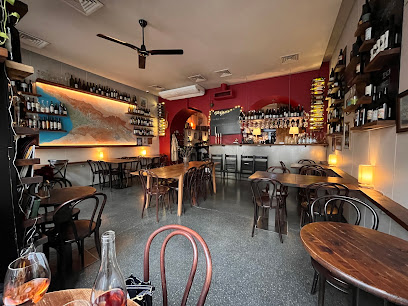
Sakhelosno BAR
Dive into the electrifying nightlife of Tbilisi at Sakhelosno BAR, a lively bar near the Bridge of Peace offering cocktails, dancing, and an unforgettable atmosphere.
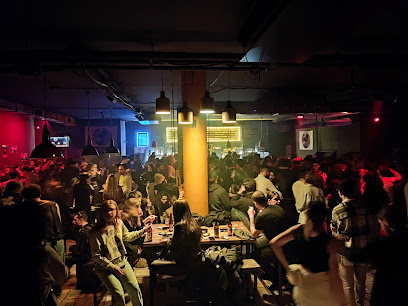
The Nali Pub
Experience the vibrant atmosphere of The Nali Pub, where Irish charm meets Georgian hospitality in the heart of Tbilisi.
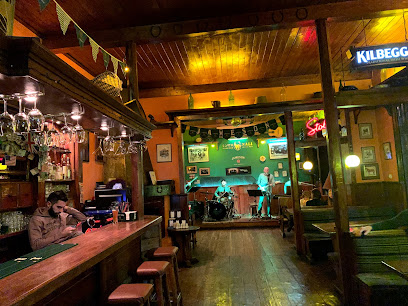
Canudos Ethnic Bar
Immerse yourself in Georgian nightlife at Canudos Ethnic Bar, where eclectic decor meets vibrant culture in the heart of Tbilisi.
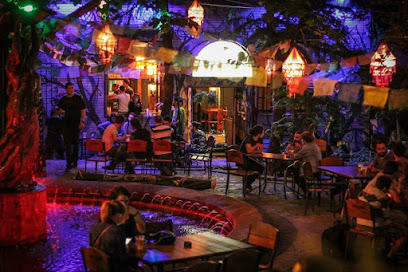
Cocktail Factory Tbilisi
Experience innovative cocktails and a vibrant nightlife at Cocktail Factory Tbilisi, where artistry meets mixology in a stunning setting.
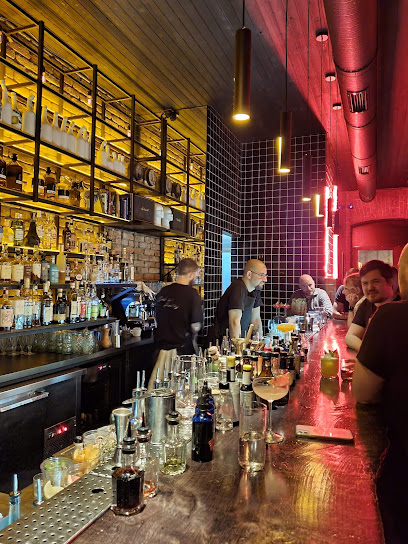
Soda
Discover Soda in Tbilisi: A cocktail bar that blends vibrant flavors with a cozy atmosphere for the perfect night out.
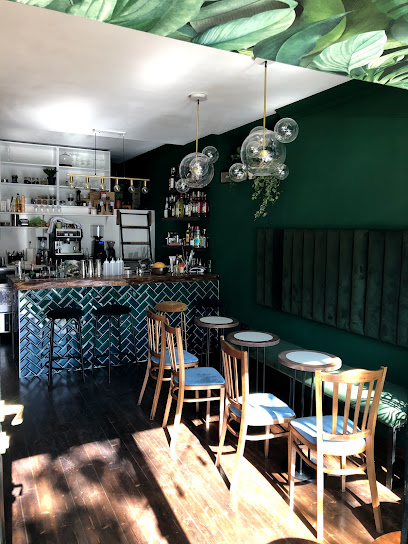
Woland's Speakeasy
Experience the magic of Tbilisi's nightlife at Woland's Speakeasy, where cocktails and camaraderie await in a unique, whimsical setting.
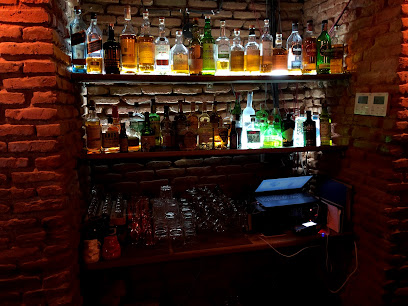
Barbar'a Bar
Experience unique cocktails and a cozy atmosphere at Barbar'a Bar, a hidden gem in Tbilisi's historic district.
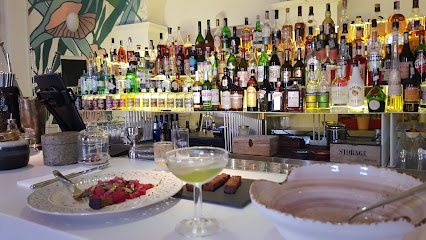
Nomad's Bar
Explore Tbilisi's nightlife at Nomad's Bar, where unique cocktails and vibrant ambiance create unforgettable memories in a charming setting.
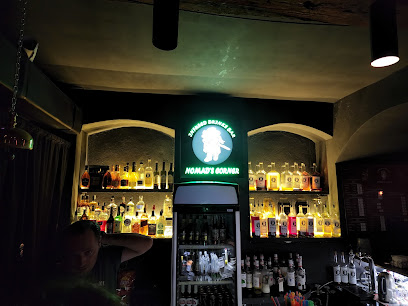
Bunker Bar
Discover the vibrant nightlife of Tbilisi at Bunker Bar, where live music meets eclectic tastes in a unique setting.
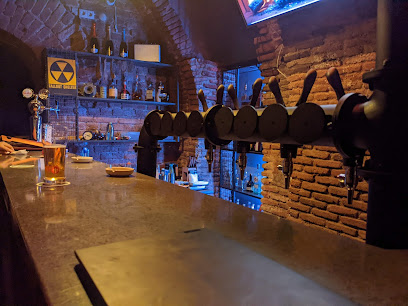
L.P.M. Bar
Experience vibrant Latin vibes and delightful cocktails at L.P.M. Bar in Tbilisi's charming Sophiko Chiaureli Garden.
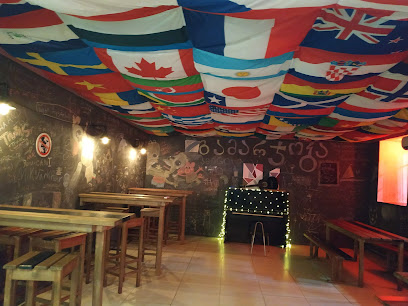
RUM ROOF KITCHEN AND BAR
Experience the best of Tbilisi at Rum Roof Kitchen and Bar, where delicious cuisine meets stunning rooftop views and vibrant nightlife.
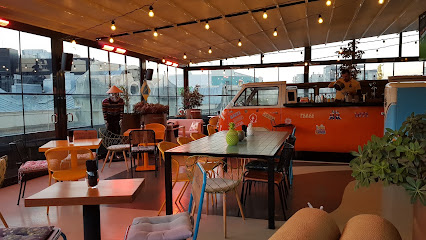
Rock Paper Scissors
Experience the vibrant nightlife of Tbilisi at Rock Paper Scissors, a unique bar offering a delightful selection of drinks in a cozy atmosphere.
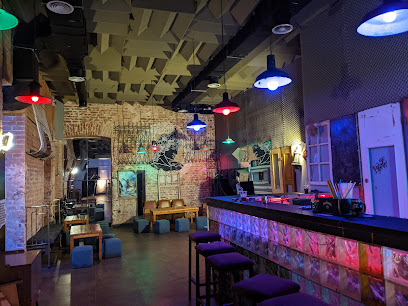
Local Phrases
-
- Helloგამარჯობა
[gamarjoba] - Goodbyeნახვამდის
[nakhvamdis] - Yesკი
[ki] - Noარა
[ara] - Please/You're welcomeგთხოვთ
[gtkhovot] - Thank youმადლობა
[madloba] - Excuse me/Sorryშენიშვნა
[shenishvna] - How are you?როგორ ხარ?
[rogor khar?] - Fine. And you?კარგად. შენ?
[kargad. shen?] - Do you speak English?იცით ინგლისურს?
[itsit inglisurs?] - I don't understandარ ვართ გაიგეთ
[ar vart gaiget]
- Helloგამარჯობა
-
- I'd like to see the menu, pleaseგთხოვთ მენიუს ნახოთ
[gtkhovot menuis nakhoto] - I don't eat meatარ ჭირდება ხორი
[ar chird'eba khori] - Cheers!გაუმარჯოს
[gaumarjos] - I would like to pay, pleaseგთხოვთ გადავახდოთ
[gtkhovot gadavakhdot]
- I'd like to see the menu, pleaseგთხოვთ მენიუს ნახოთ
-
- Help!დახმარება!
[dakhmareba!] - Go away!წადი ინგე!
[tsadi inge!] - Call the Police!დააუყე პოლიცია!
[daayue politsia!] - Call a doctor!დააუყე ექიმი!
[daayue ekhimi!] - I'm lostშემიზღარდა
[shemizgharda] - I'm illვავსები
[vavsebi]
- Help!დახმარება!
-
- I'd like to buy...გთხოვთ შეიძინოთ...
[gtkhovot sheidzinot] - I'm just lookingვინც ვხედავ
[vints vkhedav] - How much is it?რამდენი არის?
[ramdeni aris?] - That's too expensiveეს ძალიან არის მაღალი
[es dzalian aris magali] - Can you lower the price?შეიძინოთ დაბალი ფასი?
[sheidzinot dabali fasi?]
- I'd like to buy...გთხოვთ შეიძინოთ...
-
- What time is it?რა დროა?
[ra droa?] - It's one o'clockერთი საათია
[erti saatia] - Half past (10)ათის ნახვა
[at'is nakhva] - Morningდილი
[dili] - Afternoonსაღამო
[saghamo] - Eveningსაღამოსთავი
[saghamosTavi] - Yesterdayგუშინ
[gushin] - Todayდღეს
[dges] - Tomorrowხვალ
[khval] - 1ერთი
[erti] - 2ორი
[ori] - 3სამი
[sami] - 4ოთხი
[otkhi] - 5ხუთი
[khuti] - 6ექვსი
[ekvsi] - 7შვიდი
[shvidi] - 8რვა
[rva] - 9ცხრა
[tskhra] - 10ათი
[ati]
- What time is it?რა დროა?
-
- Where's a/the...?სადაა...?
[sadAa...?] - What's the address?რა არის მისამართი?
[ra aris mismart'i?] - Can you show me (on the map)?შეიძინოთ (რუკაზე)?
[sheidzinot (ruk'aze)?] - When's the next (bus)?როდის არის შემდეგი (ავტობუსი)?
[rodis aris shemdegi (avtobusi)?] - A ticket (to ....)ბილეთი (სადაცთანაც)
[bil'eti (sadats'Tanats)]
- Where's a/the...?სადაა...?
History of Tbilisi
-
The city of Tbilisi was founded in the 5th century AD by King Vakhtang I Gorgasali of Iberia. According to legend, the king discovered the hot springs of the region while on a hunting trip. Impressed by the natural thermal waters, he decided to establish a city, which he named Tbilisi, derived from the Georgian word 'tbili' meaning 'warm'.
-
In the 8th century, Tbilisi came under Arab rule after being captured by the Umayyad Caliphate. It remained an important center of trade and culture during this period, despite the political turbulence. The Arabs established an emirate in Tbilisi, which facilitated the spread of Islamic culture and architecture in the city.
-
Tbilisi reached new heights during the Georgian Golden Age in the 12th and 13th centuries, under the reign of King David IV and Queen Tamar. The city became a vibrant center for art, literature, and science. This era marked the construction of many significant cultural landmarks, including churches, monasteries, and royal palaces.
-
In the early 13th century, Tbilisi faced the devastating Mongol invasion led by Genghis Khan's descendants. The city was sacked and suffered significant destruction. Despite this, Tbilisi remained an essential hub for trade and culture in the region, slowly rebuilding itself over the following centuries.
-
Throughout the 16th and 18th centuries, Tbilisi became a contested battleground between Persian and Ottoman forces. The city changed hands multiple times, each empire leaving its mark on Tbilisi's culture, architecture, and society. The influence of Persian and Ottoman rule is still evident in the city's diverse cultural heritage.
-
In 1801, Tbilisi became part of the Russian Empire following the annexation of the Kingdom of Kartli-Kakheti. This period saw significant urban development, including the construction of European-style buildings and infrastructure. Tbilisi emerged as a crucial administrative and cultural center within the Russian Empire.
-
After the Russian Revolution of 1917, Tbilisi briefly became the capital of an independent Democratic Republic of Georgia. However, in 1921, Georgia was incorporated into the Soviet Union. During the Soviet era, Tbilisi underwent rapid industrialization and modernization, becoming a major Soviet city while also experiencing political repression and cultural suppression.
-
With the dissolution of the Soviet Union in 1991, Tbilisi became the capital of an independent Georgia. The city faced significant challenges during the post-Soviet period, including political instability and economic hardship. Despite this, Tbilisi has undergone a remarkable transformation, embracing its historical heritage while modernizing its infrastructure and cultural scene.
-
Today, Tbilisi is a vibrant and cosmopolitan city that reflects a rich tapestry of history and culture. It is known for its diverse architecture, blending ancient structures with contemporary designs. The city's thriving arts scene, bustling markets, and renowned culinary offerings make it a must-visit destination for travelers seeking a unique cultural experience.
Tbilisi Essentials
-
Tbilisi, the capital city of Georgia, is well-connected by air, rail, and road. The primary gateway is Tbilisi International Airport (TBS), located about 17 kilometers southeast of the city center. Major airlines operate direct flights from numerous European, Asian, and Middle Eastern cities. Additionally, Tbilisi is accessible by train from neighboring countries such as Armenia and Azerbaijan, and by bus or car from Turkey, Armenia, Azerbaijan, and Russia. The city's central railway station and long-distance bus terminals provide convenient options for travelers coming by land.
-
Tbilisi offers various modes of transportation, including buses, minibuses (marshrutkas), taxis, and a metro system. The Metro, consisting of two lines, is a quick and efficient way to navigate the city. Marshrutkas cover routes not served by the Metro and are an affordable option, though they can be crowded. Taxis are widely available, and ride-hailing apps like Bolt and Yandex Taxi offer competitive rates. For a more scenic experience, consider taking the funicular to Mtatsminda Park or the aerial tramway to Narikala Fortress. Walking is also a pleasant way to explore the city's historic districts.
-
The official currency in Georgia is the Georgian Lari (GEL). Credit and debit cards are widely accepted in hotels, restaurants, and larger shops. However, cash is often preferred in smaller establishments and markets. ATMs are abundant throughout Tbilisi, and many offer services in multiple languages. It is advisable to carry some cash for convenience, especially when visiting rural areas or smaller businesses.
-
Tbilisi is generally a safe city for tourists, but it is always wise to take standard precautions. Avoid isolated areas at night and be cautious with your belongings in crowded places to prevent pickpocketing. Areas like Station Square and Didube Bus Station have higher instances of petty crime, so remain vigilant. It is also recommended to use officially marked taxis or ride-hailing services to ensure safety.
-
In case of emergency, dial 112 for police, fire, or medical assistance. Tbilisi has several hospitals and clinics that offer quality medical care. It is advisable to have travel insurance that covers medical emergencies. Pharmacies are widespread and often have English-speaking staff. For minor health issues or over-the-counter medications, you can visit any local pharmacy.
-
Fashion: Do dress modestly when visiting religious sites. Avoid overly revealing clothing. Religion: Do respect local customs. Cover your head and dress conservatively when entering churches. Public Transport: Do offer your seat to elderly passengers. Don’t eat or drink on public transport. Greetings: Do greet people with a handshake or a slight bow. A friendly 'gamarjoba' (hello) is appreciated. Eating & Drinking: Do try local dishes and accept hospitality graciously. Don’t refuse food or drink when offered, as it may be considered impolite.
-
To experience Tbilisi like a local, visit the bustling Dezerter Bazaar for fresh produce and local goods. Spend an evening in the historic district of Abanotubani, known for its sulfur baths. Engage with locals in cafes or wine bars, as Georgians are renowned for their hospitality. Don't miss a stroll along Rustaveli Avenue and the Dry Bridge Market for unique souvenirs. For a more in-depth cultural experience, attend a traditional Georgian polyphonic singing performance or a local supra (feast).
Trending Landmark in Tbilisi
-
მთაწმინდის პარკი -Mtatsminda Park
-
Bridge of Peace
-
Rike Park
-
Liberty square
-
Holy Trinity Cathedral of Tbilisi
-
National Botanical Garden
-
Narikala
-
Chronicle of Georgia
-
Mother of Georgia
-
Gabriadze
-
Monument of St. George
-
Meidan Bazar
-
Metekhi Virgin Mary Assumption Church
-
Sion Cathedral of Tbilisi
-
Kashueti St. George Church
Nearby Cities to Tbilisi
-
Things To Do in Mtskheta
-
Things To Do in Telavi
-
Things To Do in Gori
-
Things To Do in Haghpat
-
Things To Do in Alaverdi
-
Things To Do in Sighnaghi
-
Things To Do in Signagi
-
Things To Do in Vanadzor
-
Things To Do in Dilijan
-
Things To Do in Aparan
-
Things To Do in Gyumri
-
Things To Do in Tsaghkadzor
-
Things To Do in Akhaltsikhe
-
Things To Do in Yerevan
-
Things To Do in Ganja

















